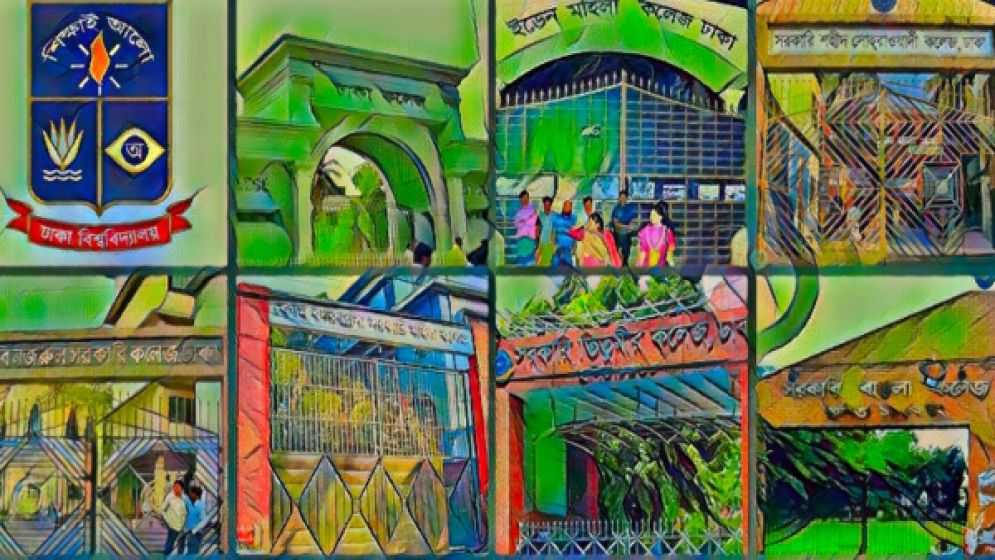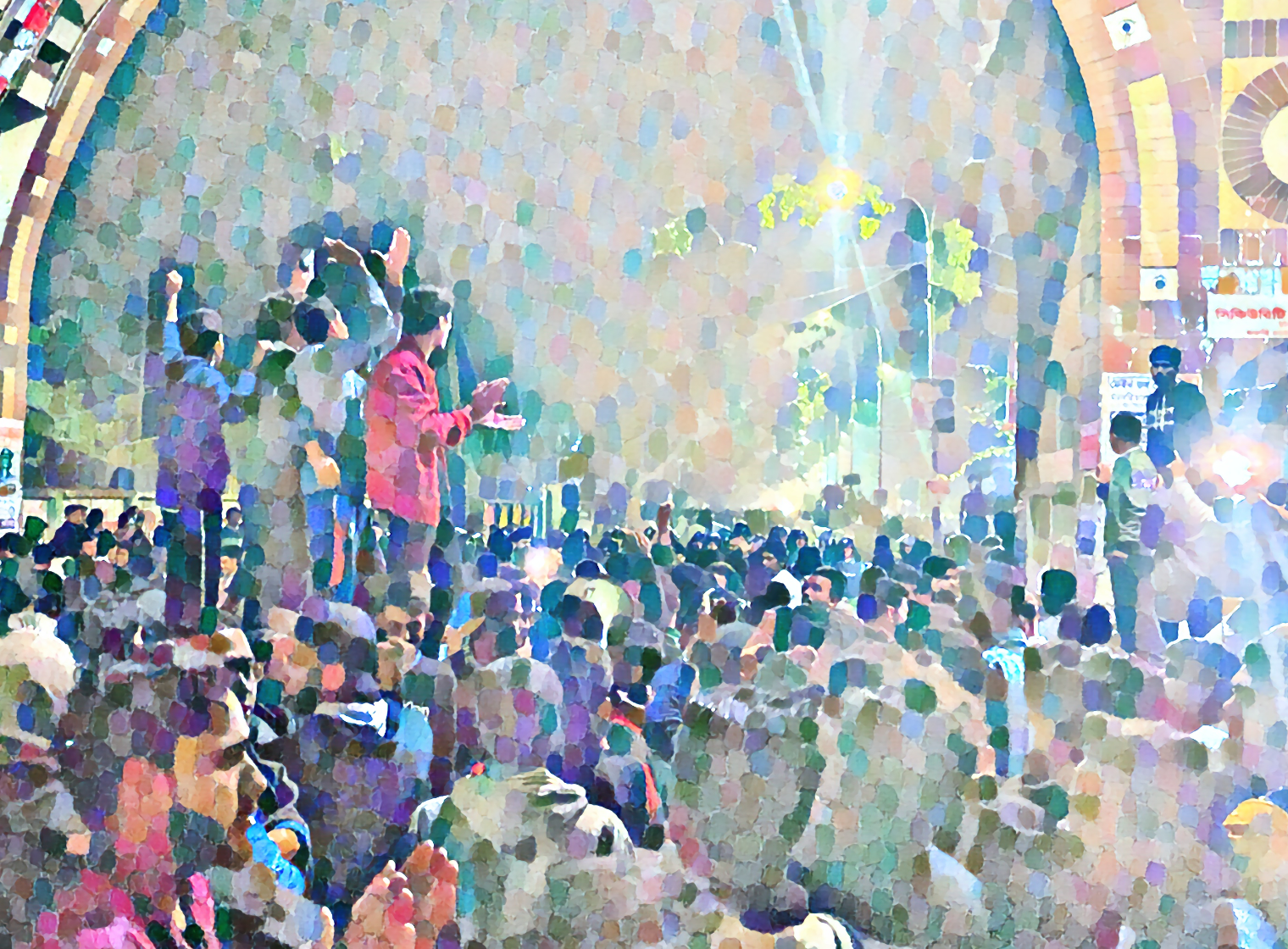DU-seven colleges clashes expose a troubling reality

The violent clash between students from the seven colleges, including Dhaka College, and Dhaka University (DU) has once again exposed Bangladesh to a harsh political reality, deepening its divisions.
It underscores a profound truth that we must confront: to sustain the fragile unity established after the July protests, we can no longer depend on idealistic notions like the “July spirit” or the comforting comfort of conspiracy theories.
The country's ongoing crises demand more than symbolic gestures; they call for concrete, creative solutions to the institutional dysfunctions that have become entrenched, especially under the regime of Awami fascism.
If the underlying problems aren’t addressed, the disunity and instability will only worsen.
A few observations on last night's unrest are in order.
It’s hard to ignore the political undercurrents swirling around the conflict, with accusations flying between various parties and student factions.
But playing the blame game only muddies the waters and distracts from what really matters: the root causes of the crisis.
Pointing fingers at each other for short-term political advantage won’t solve anything. It’s time to get to the heart of the matter.
The core issue is the integration of the seven colleges into Dhaka University, a move that has its origins in the Awami League's tenure.
This seemingly bureaucratic change has had far-reaching consequences: students from both the seven colleges and DU have found themselves in a limbo of administrative disarray, caught between conflicting policies and bureaucratic entanglements.
Until this issue is resolved, the tensions that erupted last night will continue to simmer. The solution lies in the students of DU and the seven colleges raising their voices in unison. The fate of both institutions hangs in the balance.
This incident—and the many that have preceded it—also serves as a damning indictment of DU's administration.
The focus is now on Pro-Vice Chancellor Dr Mamun Ahmed, with many pointing to his political affiliations and his role in exacerbating the crisis.
But while there may be some truth to the accusations, to place the blame solely on Dr Mamun is to overlook a deeper, more systemic issue.
Dr Mamun did not create this toxic culture of impunity alone.

The need for a
student-centric, accountable DU administration
Look at the recent history: the notorious removal of the iconic graffiti after the July uprising, the repeated physical assaults on students, and the increasing incidents of mob-like behavior on campus.
Time and again, the university's proctorial body has stood by in passive complicity, sometimes even siding with the perpetrators.
In Sunday’s episode, the proctorial body again failed to carry out its most basic duty—maintaining order and protecting students.
When students tried to stand up for themselves, they were vilified as part of a ‘mob’ or dismissed as pawns in a supposed ‘conspiracy.’
In a disturbing twist, some students, rather than challenging the system, took to the streets in defense of the very authority figures who had failed them.
What this reveals is a pattern of disengagement from real responsibility—a failure of leadership that stretches far beyond the actions of a few individuals.
The administration, instead of cultivating a culture of accountability, has nurtured an atmosphere where power is wielded with impunity, and dissent is quelled with disdain.
If there is any hope of resolving this crisis, it begins with a genuine effort to address the systemic issues, not merely its symptoms.
The students of DU and the seven colleges must confront this challenge together—not as separate entities fighting for their own interests, but as a united force pushing for a more inclusive, just, and accountable administration.
Until that happens, the cycle of violence, frustration, and division will only continue to spiral.
At present, various political factions are represented within the DU administration, which has led to a troubling pattern: when students resist or protest, certain political groups rally to defend professors who are politically aligned with them.
This dynamic must end. What we urgently need is a culture of accountability, one where the university administration does not rely on political groups as ‘shields’ from student demands.
If this continues, the entrenched system of political patronage will persist, and real accountability will remain an elusive goal. In such an environment, students’ legitimate concerns will be dismissed, and their voices will be ignored.
The DU administration should have revisited the issue of the seven colleges immediately upon assuming responsibility.
Their failure to address this matter in a timely manner has only fueled the tensions. It is now imperative that they act swiftly to resolve the issue.
Additionally, the administration must focus on creating a truly student-friendly environment, one that rises above party politics and puts the needs of students first.

Breaking the wall of
division
Many of the leaders in the anti-discrimination student movement are working hard to de-escalate the conflict.
They are making sincere efforts to understand and address the concerns of the seven colleges. Their efforts deserve recognition and support.
However, there is a troubling undercurrent among DU students—across political lines—that continues to harbor a sense of arrogance, resentment, and hostility toward the students of the seven colleges.
This attitude was evident in Sunday’'s events, with some DU coordinators openly expressing disdain for the seven colleges.
This mindset is a legacy of the Awami regime, which fostered an environment of divisiveness between DU students and those from the seven colleges.
As a result, many DU students are now opposing the legitimate demands of their peers. The DU administration, instead of acting as a mediator, has taken on the role of a partisan enforcer, further exacerbating the situation.
During the Awami era, an anti-outsider and anti-seven-college sentiment was deliberately cultivated on the DU campus.
Initially led by Chhatra League activists, and later supported by figures like Nurul Haque Nur and his faction, this movement deepened the divide between DU and the seven colleges.
This history is crucial to understanding the current climate at DU, and it is essential that the administration work toward breaking down these barriers rather than perpetuating them.
The bitter divide between Dhaka University (DU) students and those from the seven colleges could have been dismantled by the unity forged in July.
At its core, the issue was one created by the DU administration, and it was a problem that could have been resolved through the collective efforts of both DU and seven-college students.
July could have fostered an awareness of this reality, offering a chance to break the cycle of arrogance and dismissiveness that some DU students harbor toward their peers from the seven colleges.
Unfortunately, that opportunity was missed, and the resulting failure is regrettable.
Rather than descending into political mudslinging over yesterday's incident, it’s time for all parties involved to work collaboratively toward a resolution.
If we are truly committed to ending the divisions, we must break free from the outdated habit of assigning blame and focus on identifying the root cause of the issue.
Moving forward, it is critical that we adopt a new, solution-oriented approach, one based on effective problem-solving and mutual understanding.
—-
Tuhin Khan is a writer, thinker & member of the National Citizen Committee

